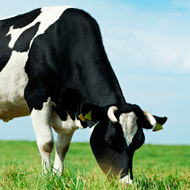Build on TB eradication plan, urges CLA

CLA calls for the government to continue the badger culls and work towards lifting farm movement restrictions.
A membership organisation for land owners has called on candidates in next year's general election to build upon the 25-year bovine TB (bTB) eradication plan and continue with badger culling as part of a wider strategy.
Members of the Country Land and Business Association (CLA) own and manage half of the rural land in England and Wales.
The organisation has released a manifesto for the 2015 elections – titled “Unlock the Countryside's Potential” – setting out recommendations to election candidates.
It states that while the government's bTB strategy is “challenging” it offers a “realistic and holistic long-term view” to rid England of the disease.
Cattle slaughters due to bTB totalled 38,000 in 2011. The disease is thought to have cost the British taxpayer around £500million over the past decade – a figure estimated to rise to £1billion over the next 10 years.
The CLA said it welcomed last year's badger culls as part of a “wider science-based strategy” and calls on the next government to continue with trial culls.
After Liz Truss recently replaced Owen Paterson as environment secretary, she announced that the badger culls would continue in Gloucestershire and Somerset. It is reported that she also recently confirmed Natural England will monitor the culls.
Last year's pilot culls were found to be ineffective and inhumane by an independent expert panel (IEP) and have long been controversial. The Badger Trust was recently granted a judicial review of the legality of conducting the culls without an IEP to monitor them.
In its manifesto, the CLA says it supports the continuation of the culls as part of a wider strategy “based on the latest scientific evidence.”
It also calls on the next government to engage with stakeholders to work towards the removal of farm movement restrictions, while ensuring traceability and food safety.
Read the CLA's full manifesto: www.cla.org.uk



 HMRC has invited feedback to its communications regarding the employment status of locum vets and vet nurses.
HMRC has invited feedback to its communications regarding the employment status of locum vets and vet nurses.